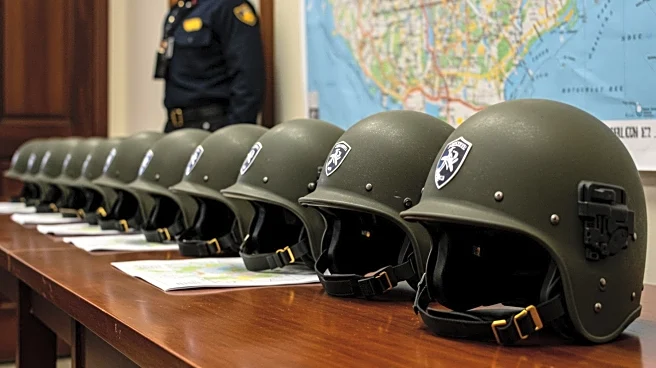What's Happening?
The National Guard has been deployed in Washington DC following an order from President Trump, who has taken control of the city's police force. This action comes despite official statistics indicating that the city's violent crime rate is at a 30-year low. Approximately 800 National Guard members are expected to be mobilized, with a small number already deployed. The White House reported that about 850 officers and agents participated in a law enforcement surge across the city, resulting in nearly two dozen arrests.
Why It's Important?
The deployment of the National Guard in Washington DC highlights ongoing concerns about crime and public safety in the nation's capital. While the violent crime rate is reportedly low, the decision by President Trump to intervene suggests a differing perception of the situation. This move could have implications for local governance and federal-state relations, as well as influence public opinion on crime and security measures. The deployment may also affect the daily lives of residents and businesses in the area.
What's Next?
Further deployments of National Guard members are expected in the coming days. The situation may prompt reactions from local government officials, civil rights groups, and community leaders, who could challenge the necessity and impact of such federal intervention. Discussions around crime statistics and public safety policies may intensify, potentially leading to debates on the balance between federal authority and local autonomy.
Beyond the Headlines
The deployment raises questions about the federal government's role in local law enforcement and the potential for increased militarization of police forces. It also touches on broader themes of governance, civil liberties, and the perception of crime in urban areas. The decision may set a precedent for future federal interventions in local matters.









